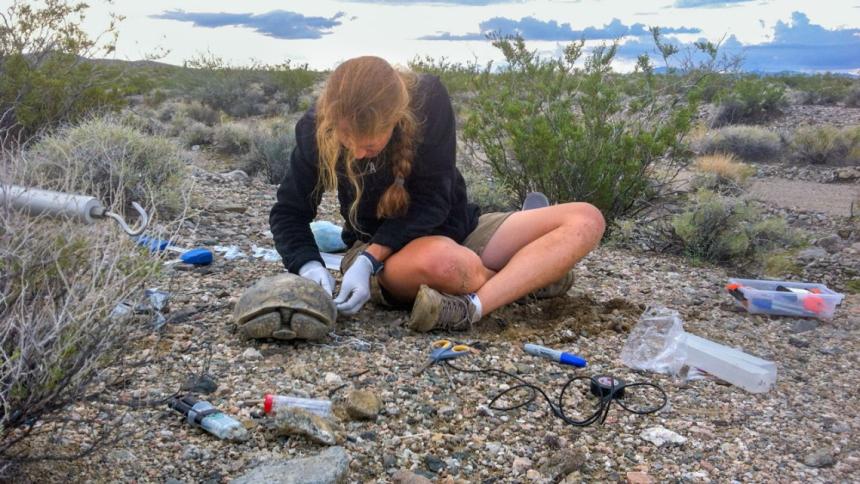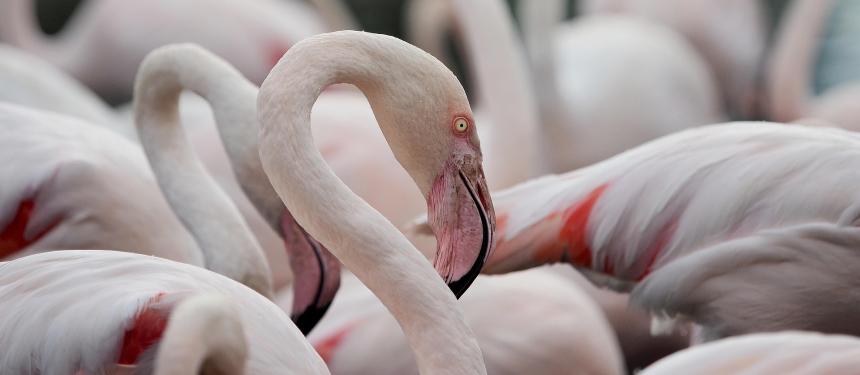News

December 28, 2023
A recent study led by Cornell researchers reveals how environmental changes such as climate change, land use change, and dams on the Mekong River threaten the future of local communities that depend on these ecosystems for their livelihoods and food security.

December 22, 2023
A new method could be used by biologists to estimate the prevalence of disease in free-ranging wildlife and help determine how many samples are needed to detect a disease.

Video
December 15, 2023
Cornell veterinary student Carolina Baquerizo, DVM ‘24, came across this gorilla family while working with Conservation Through Public Health in Bwindi Impenetrable National Park to assess the presence of salmonella in gorillas, livestock and people.

Blog
December 14, 2023
Cornell veterinary student Erica Jackson, DVM '25, discusses her experiences working at Six Flags Great Adventure Wild Safari in Jackson, New Jersey over the years.

December 13, 2023
Around 220 flamingos have been found dead in Argentina due to an outbreak of avian influenza, also known as bird flu. Cornell's Dr. Krysten Schuler weighs in on this highly contagious and deadly viral disease.

December 12, 2023
Renowned wildlife veterinarian Dr. Markus Hofmeyr visited Cornell University to share his perspectives on sustainable conservation, focusing on challenges and successes around wildlife reintroduction and rewilding.

December 06, 2023
A massive die-off of the endangered species has been happening in sub-Saharan Africa since 2020. Until now, the culprit was unknown. A new study has shown the cause to be a bacterium not previously found in elephants of any species, called Bisgaard taxon 45, that causes septicemia.

Blog
December 01, 2023
There are times in life where things don’t go as expected, including on June 13, 2023, when I showed up for the first day of my project at SANCCOB, the Southern African Foundation for the Conservation of Coastal Birds, as part of Cornell’s Expanding Horizons Program....

November 30, 2023
Dr. Cynthia Hopf-Dennis from the Janet L. Swanson Wildlife Hospital at Cornell University discusses her path to teaching and practicing wildlife medicine and population health to preserve the health and well-being of our native wild animals while educating others about their value.

Blog
November 28, 2023
Cornell veterinary student Sergio Acuna Gutierrez traveled to Guadalajara, Jalisco in Mexico for ten weeks to work at the Zoológico Guadalajara. Home to over 3,500 animals from over 300 different species and built on a reserve at the edge of the Huentitan Canyon, Zoológico Guadalajara is one of the largest zoos in all of Latin America.
